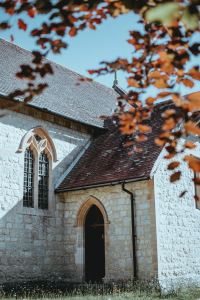 I love going to different churches and contributing to Mass by playing piano. Each church has their own way of doing things and as a guest musician you have to do your best to follow their traditions. But playing at Mass as a guest is always just a bit more complicated than it seems. Let me explain some of the things that musicians have to keep in mind while they are playing.
I love going to different churches and contributing to Mass by playing piano. Each church has their own way of doing things and as a guest musician you have to do your best to follow their traditions. But playing at Mass as a guest is always just a bit more complicated than it seems. Let me explain some of the things that musicians have to keep in mind while they are playing.
- Each priest prefers/disapproves of different songs. When planning music for a wedding, funeral, or other Mass, each priest (and diocese) has guidelines on songs that they agree with being played. Keeping track of which priests allow songs, like Amazing Grace, and which ones have discouraged it is sometimes hard to remember.
- Psalms. A few years ago our diocese asked us to use direct wording for the psalms since it was a scripture reading, rather than musical and artistic rewordings. This meant that some of our favorite psalm settings had to be put on the back shelf. But then, now, a few priests are fine with us using them. Others stick to the guidelines of only using direct wordings.
- Wait times after scripture readings. This is kind of a Goldilocks issue. Some priests prefer no wait time between the readings, some like just a little bit of time, and some like us to wait 30 seconds (we have a clock to watch!) after each reading before starting the Psalm or the Alleluia.
- Tempos. When I was a guest musician at a different church, I had to slow my roll on every song. Every song I played during my practice with the cantor was too fast. That’s because I come from a parish that likes lively songs — no dragging the tempo allowed! There’s also priests who prefer songs faster, especially the longer songs.
- Instruments. So. At one church I get a baby grand (where two notes are always out of tune), another I have to chase the pedal while playing because it’s a keyboard with a plug-in pedal, and that pedal slides around. And then another church where the keyboard is 20 years old, and I have to remember that anything in the last two higher octaves is so piercing that it’ll either make the congregation jump or blow their eardrums out. Either way, I have to modify on the fly. I also have to remember that on most keyboards, as soon as a note is played, the sound dies off unlike a piano. This means tempos must be quicker or there is too much dead space, and fermatas can’t be used.
- Hands off the technology! I’ve learned never to try and turn on a mike or keyboard without talking to the person in charge. Most churches have master switches hidden somewhere that we have to turn on first. If you mess with the switches on the pianos and mikes then you have messed something up!
- Line of sight from the piano. Typically this isn’t a problem, but when playing for funeral Mass or wedding Mass, I have to time the beginnings of songs with things that are happening at the back of the church. Guess what – those balconies are so fun to sing from, but they are hard to see what’s happening. That’s why I ask brides who is to come down the aisle right before they do. And funerals, I have to remember the wording the priest says right before the family enters. One of these days I’m going to put together a sheet that has the wording for funeral and wedding Masses and keep it in my binder. (I’ve been saying this for years now…)
- To announce or not to announce…that is the question. Most churches have songs announced before I am to start playing, but I do have to remember which ones I am to start playing the hymns without them being announced. Otherwise there is a long span of silence and people start staring, and the priest gives me the look of “you need to play NOW!”, and the cantor is starting to look at me and loud whispering “Play!”
- Playing at my usual church has become very comfortable over the years, but when I encounter a new priest, or a new church family, I am always reminded of the anxiousness I felt when I first started playing piano at Catholic masses. The biggest help to me was, and still is, to have an experienced singer singing at Mass. I lean on them for their knowledge of how each priest operates, and what their congregation is used to. I always try and utilize them and draw from their expertise. And we typically have a very successful time with the music at Mass.
